Episodes
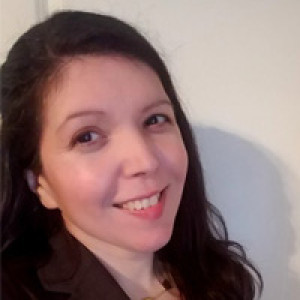
Monday Dec 14, 2020
Episode 115 - Aida Ramos: How the Big Picture Sheds Light on Economics
Monday Dec 14, 2020
Monday Dec 14, 2020
- Our guest, economics professor Dr. Aida Ramos, returned for further conversation after Episode 114. She pointed to wisdom in papal encyclicals from the past that we still need to tap into today—for the sake of just and reasonable arrangements in society and the economy. The granddaddy of these encyclicals is Rerum Novarum, from Pope Leo XIII in 1891. Forty years later, Pope Pius XI issued Quadragesimo Anno.
- Words are important, we noted in our discussion. The root for the word subsidiarity, which is a key concept in Catholic Social Thought, comes from the Latin for assistance or help. The origins of the word economics trace back to the management of a household, which incorporated a sense of stewardship, seeking the good for all persons connected with a household.
- Ramos pointed out that the appeal of Catholic Social Thought is by no means limited to Catholics or the Church. This wisdom is compatible with a broader legacy of insights deep in the Western intellectual tradition. She discussed economic insights embodied in the Acts of Union of 1707 in Great Britain, as described in her book, Shifting Capital.
- Historical figures who helped to shape ideas of economic justice through their expertise and their advocacy regarding the Acts of Union included Sir James Stewart. Dr. Ramos also mentioned Adam Smith, the 18th century economist and moral philosopher whose book The Wealth of Nations argues for the wisdom of free market capitalism. Henry George, a 19th century economist, also contributed to the secular intellectual trends which ran counter to the individual-utility principles of today’s neoclassical economics.
- Echoes of the notions more inclined toward common-good thinking are expected to receive attention in a new introductory economics textbook now being written by development economist Jeffrey Sachs. This will integrate concepts of subsidiarity and common-good motivation, which have a long history in secular discussion and are outlined cogently in Catholic Social Thought.
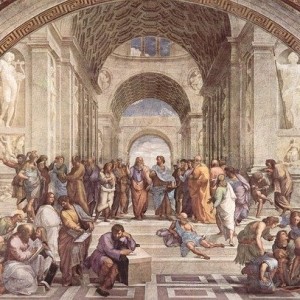
Monday Oct 12, 2020
Episode 111 - A Catholic Teacher – Dear Old Golden Rule Days
Monday Oct 12, 2020
Monday Oct 12, 2020
- Brad Stalcup joins Paul and Bill in this episode to talk about his recent entry into the world of Catholic education. He began teaching religion to high school freshmen and sophomores in this fall semester of 2020—a time that Paul describes as a “baptism of fire” because of Covid-19 and today’s unusual circumstances overall.
- The vast majority of the approximately 120 students in Brad’s various classes is learning in-person, but there are several who are “live-streamers,” participating in the courses through distance-learning. The school is located in the region around Cleveland, OH.
- It’s a labor of love, not overwhelming, and “I’ve got great students,” Brad says He has not surveyed the classes to find out which ones identify themselves as Catholic, but the vast majority are Catholic and probably 50 percent are practicing Catholics in the sense of weekly Mass attendance. There is definitely a Catholic identity in this high-powered school, “which I’m grateful for,” Brad says.
- There is an eagerness to learn, especially among the freshmen, he says. He recalls that his own freshman year was a bit of an iffy time, and he wanted to help young people not fall into the trap of a slow start in high school, perhaps accompanied by theological doubt. The bottom line for sophomores is that they try to predict and give the teacher the “right answer.”
- Two key messages to Brad’s approach to the freshmen: God does stuff. And your life matters. Because of scientific materialism, there’s a temptation to think life doesn’t matter because humans are actually reduced to a tiny bit of matter drifting through space. For the sophomores: God desires your happiness. And He invites you into relationship. Church only makes sense in the context of relationship, Brad points out. His principal goal is to rid them of “moralistic, therapeutic deism,” which already shows up in students’ papers—when they say, “God is there for you,” for example
- Brad says he likes using poetry, particularly “The Hound of Heaven.” It makes both of the two points he wants to focus on with freshmen. He adds that it’s important to present certain things as true while also leaving room for questions. Or else they will build a wall around their heart. Thomas Aquinas himself asked the question, “Does God exist?” so it’s a worthy question to think about. Ceasing to believe in God drives a wedge between science and God. Today’s focus on science is for things that happen on earth and God is for my spiritual fulfillment. When they start conflicting, our culture encourages scientistic This involves incorporating faith and reason together in a healthy way—leaving room for questions, having them think about life in non-scientific ways.
- Learning science involves asking questions just like learning religion. The tendency in students is to think they can memorize answers, in both, but there are more constructive ways to teach both.
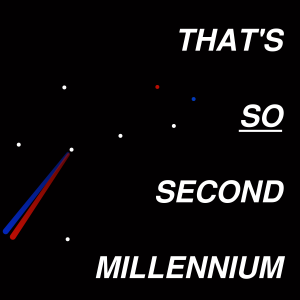
Tuesday Aug 25, 2020
Episode 108 - Masks, Science, Novelty, and Conservatism
Tuesday Aug 25, 2020
Tuesday Aug 25, 2020
or Paving Paradise and the Parking Lots
Bill and Paul discuss attitudes toward masks, and then consider why the science wasn't more settled on the subject long before Covid-19. We discuss the obsession of modern society with all things novel and consider how this plays out in science, politics, and our individual lives and families.
1. A discussion of masks as defenses against the pandemic led Paul and Bill to ponder how scientific knowledge about the functionality of these masks for the common good is not always viewed as a fundamental, enduring value. In our media, the mask discussion gets wrapped up in political and symbolic and power-struggle considerations. The methodical pursuit of knowledge based on shared values and needs has been partly replaced by a marketplace of ideas that gets bored with what we know. Support for ideas gets hijacked by pursuits of vaguely defined notions of progress which are relativistic and individualistic and not systematically carried out through time.
2. Paul pointed out that he sees in the world of science that there are some surprising gaps in knowledge about certain things that resulted partly from people seeing no particular motivation—or research grant money—to drive knowledge forward. With some important exceptions, knowledge in some fields grows more randomly than through a coordinated sense of purpose. Paul recalled an earlier discussion about “p values” that can fail to give researchers the persistence born of confidence that next stages of knowledge will give us what we need to solve problems in a meaningful way.
3. As Paul put it, a “p value” may tell you the likelihood of your data given your hypothesis, but what we’d really like is to know the likelihood of our hypothesis given our data.
4. Bill pointed out that traditional notions of the university seemed to have a more obvious commitment to nurturing, collecting, and spreading knowledge so that it could become the reliable framework for incrementally building new knowledge that brings us closer to solving problems. But there is a notion in the present-day university—and in the marketplace, as Paul agreed—that progress is gained through disruption—dismissing or dismantling or deconstructing current knowledge because it isn’t as exciting or satisfying as a march toward future knowledge can be. That knowledge is seen as inherently better, Bill said, but our eager disregard of today’s knowledge suggests we will treat tomorrow’s knowledge in the same dismissive way. So we’re moving but not really expecting to get anywhere better as a society.
5. We’re caught up in the search for novelty. We’re looking for the next revolutionary thing that makes old learning moot. Shouldn’t we be trying to build and improve upon the good parts of the status quo. Can we find a golden mean between a love for innovation and a desire for preservation (a conformism?) that values the knowledge already acquired. In some sectors, has innovation been redefined at its very roots? Are we disinterested in the long-term trajectories of our human engagements and projects? Are we only focused on doing what’s new, bigger, and better in the current moment, leaving little interest in yesterday or tomorrow?
6. We’re describing a disposable mindframe. Today’s sense of urgency amid impending crises can make us so focused on new action for its own sake that we are willing to disrupt or tear down much of our current life and the history that brought us here. There seems to be too little argument in favor of recognizing the good things we have achieved and our responsibility to conserve/preserve these things. We have so much social capital built up over time, we feel less responsibility to preserve current sources of stability and sustainability. It seems okay to tear these things down. In periods of human history where survival has been more at stake, where there has been less of a cushion of social capital, the marketplaces of ideas and capital have more doggedly pursued incremental change which values and builds upon what has come before. On a grand scale, we don’t expect to feel a pain of loss, but at the personal and spiritual level, people are feeling the pain of loss, fear for the future, dislocation and disconnection, all the time. Indeed, our overall happiness as a society has eroded.
7. People have come to see the future as so urgently problematic that they’re more willing to quickly and readily dispose of stuff from the past without allowing any grounded time or space for wise transitions. No one is coaching us to press pause.
Audio editing by Morgan Burkart.
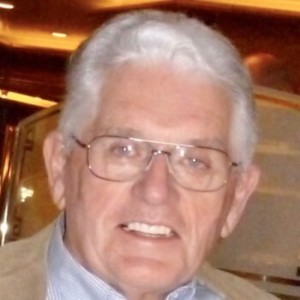
Monday Aug 10, 2020
Episode 107 - Dick Garrett on Kids, Schools, and Teachers
Monday Aug 10, 2020
Monday Aug 10, 2020
This is part 2 of our interview with Richard Garrett, author of The Kids Are Smart Enough, So What’s the Problem?
Find an overview of his distinguished career in this story about Dick’s zeal for researching and promoting education reform. (The story was written for Purdue’s College of Engineering by Bill last year.)
Dick’s book traces his growing concerns about problems in public elementary education. Those concerns led to extensive research from a business executive’s perspective, applying systems analysis skills from his background in engineering. Our interview probed not only the findings from that research, but even more current knowledge of education reform efforts which Dick continues to harvest and share. He has created an online gallery of videos for the general public, explicating what he has learned about educational-outcome statistics and various efforts to improve the outcomes. The videos are part of his “Elevate Teachers” website, which champions robust investments to help both teachers and students succeed.

Monday Jul 27, 2020
Episode 106 - Beyond Heisenberg, the Principal Uncertainty
Monday Jul 27, 2020
Monday Jul 27, 2020
...or as Paul wanted to put it, "Lies, D--d lies, and p-values."
- This episode contains a conversation between Paul and Bill in which you’ll learn new things about their experience in particular fields—geology and journalism, respectively—and where their zeal to harvest and connect information bumps up against troublesome uncertainty. You’re accustomed to hearing us as podcast co-hosts, sharing our opinions and our interviews with experts to explore insights at the intersection of science, everyday human experience, and the values of theology and philosophy. We welcome an audience that, like us, hungers to understand the details that well-informed research provides—in light of the wonder, mystery, and uncertainty that we complex human creatures provide. We embrace deeper and broader consideration and communication, and these values feed into our “day jobs,” which involve writing, teaching, consulting, and more.
- Paul’s efforts to dig more deeply into the methods of purposeful scientific learning recently prompted him to enroll in a data-science “boot camp”—an intense, 12-week course offered by an organization called Metis. He wants to extract every bit of value from the oceans of data generated in this world. Or at least he wants the value that will serve his own colleagues and clients as he tackles projects and secondarily adds content to “Dr. G’s Blog,” named for him—Dr. Giesting. One of his guiding maxims is mentioned here: “No Data Left Behind.”
- (Testifying to the diversity of the “That’s So Second Millennium” duo, Bill likes to focus on story-telling for clients to describe various accomplishments of science and values, sometimes faith and reason. And he’s writing in his OnWord.net blog these days about crucial times in our world today that will require rich knowledge and deliberation alongside problem-solving strategies marked by prudent, civil, inclusive dialogues and inquiries. This is an example of the approach he’s formulating. But today’s podcast draws its energy mostly from the Paul’s recent ruminations.)
- Those thoughts include a look back at something called the “p-value.” Their discussion of p-values in the world of scientific statistics led Paul and Bill into consideration of the co-existence of intellectual rigors necessary to the practice of research and unavoidable uncertainties inherent in the real-world application of data-driven knowledge. That co-existence of firm principles and subjective interpretation turns out to be a phenomenon that both co-hosts have experienced in their respective fields. They agreed that the pursuit of more and more data, nurtured by practicality and idealistic values, is a beautiful thing, but it’s not always possible. In many cases where a specific project is choosing and using a finite set of data, the consumers of scientific or journalistic information have reason to quote the skeptic’s famous aphorism that “there are lies, damned lies, and statistics.”
- Bill cited examples from the past reporting of political polls, which too easily can neglect important nuances that should influence an audience’s interpretation. Both Bill and Paul noted that, during the Covid-19 crisis, the public is seeing science and its generation of statistics play out in real time, with massive policy implications, and the practice of “objective” science now seems to many people as iffy and subjective as theology-based interpretations of the world. That’s ironic since observers have said the availability of scientific certainty and experiential knowledge has driven them away from religion as a poor, mythological substitute for reality.
- Neither co-host called for a dismissal of the knowledge gained through religion, philosophy, or statistics; after all, in many policy matters surrounded by uncertainty, statistics are a huge part of the guidance empowering human reason. But there is much going on behind the scenes at every point in a statistics-driven exercise, with some of that context warranting caution in our binary decisions about importance and implementation. Paul acknowledged that he encountered this in preparing his capstone report for the Metis data-science program. Scientists have grappled with ways to assess the validity of some data, the replicability of some experiments, and the dominance of some assumptions about statistical analysis. Indeed, the “p-value” suggests good examples of doubts that have arisen.
- This podcast discussion did not unearth any solutions for doubts about statistical findings, but it did prompt a meeting of the minds. Both the scientist and the journalist determined that all of us seeking to optimize understanding for reasonable policies and practices must continue our zealous pursuit and values-informed stewardship of data.
Image by Oberholster Venita from Pixabay

Monday Jul 13, 2020
Episode 105 – Dick Garrett: The Kids Are Smart Enough
Monday Jul 13, 2020
Monday Jul 13, 2020
- Paul and Bill welcomed Dick Garrett to our podcast. Find an overview of his distinguished career in this story about Dick’s zeal for researching and promoting education reform. (The story was written for Purdue’s College of Engineering by Bill last year.)
- Dick’s book, The Kids Are Smart Enough, So What’s the Problem?, traces his growing concerns about problems in public elementary education. Those concerns led to extensive research from a business executive’s perspective, applying systems analysis skills from his background in engineering. Our interview probed not only the findings from that research, but even more current knowledge of education reform efforts which Dick continues to harvest and share. He has created an online gallery of videos for the general public, explicating what he has learned about educational-outcome statistics and various efforts to improve the outcomes. The videos are part of his “Elevate Teachers” website, which champions robust investments to help both teachers and students succeed. .
- Observed as systems established to give students the knowledge and skills they need, elementary schools face a number of challenges, Dick said. They include segments of young people whose daily classroom behavior is a major burden, requiring teachers to pull away from educating in order to focus on discipline during sizable portions of the school day. He says the lack of self-discipline stems from parenting experiences and other factors tied to low-income community conditions.
- Students exhibit the combination of discipline problems and poor academic achievement not because of low intelligence—there is no doubt that they are smart enough to perform well—but because educational systems don’t appropriately respond to gaps in their non-cognitive abilities, according to Dick. He says schools must get better at forming general traits he summarizes as character and grit. His book presents examples of educational approaches that have aimed to enhance those traits, making classroom success more likely for all students and teachers.
- Where that success is lacking, schools fall behind in graduating students with key competitive metrics—especially a grasp of reading and math skills. This shows up in poor rankings for United States schools in statistics tallied by the Program for International Student Assessment, the US Department of Education’s National Assessment of Educational Progress, and other oversight mechanisms.
- A 2004 Public Agenda survey found that 85 percent of teachers felt new teachers were particularly unprepared to deal with disciplinary problems in their classrooms.
- A recent study by the Kirwan Commission yielded a comprehensive report on problems and prospective solutions in elementary education, and this became the basis of a legislative action plan for Maryland schools. The state government acted in early 2020 to approve funding for preliminary implementation of a major initiative based on Kirwan Report recommendations. Dick said one part of the plan envisions hiring 15,000 teachers. A major thrust of the plan is improved education of low-income children, including a cadre of teachers for smaller class sizes.
- One of Dick’s aspirations is to help in spreading the word about the Kirwan recommendations so that educational and governmental leaders elsewhere, such as his home states of Wisconsin and Indiana, will consider and implement similar proposals.
Episode 107 of “That’s So Second Millennium” next month will include part two of the interview with Dick Garrett. If you find the audio quality for this episode a little lacking, don't blame Morgan... she's on vacation this week. It's all Paul's fault (as usual).
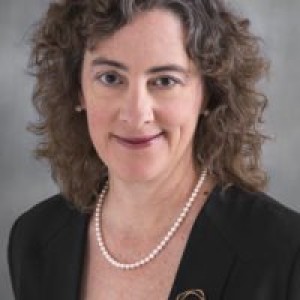
Monday Feb 10, 2020
Episode 094 - Maureen Condic (rerun, full interview)
Monday Feb 10, 2020
Monday Feb 10, 2020
This week, events have forced another "greatest hits" episode, and so we bring you for your convenience the entire Maureen Condic interview from the June 2019 Society of Catholic Scientists meeting in a one hour and forty-five minute extravaganza. The following are Bill's liner notes from the first run episodes.
- University of Utah’s information page for Dr. Maureen Condic. She is an Associate Professor of Neurobiology and Anatomy, with an adjunct appointment in Pediatrics. Her research focuses on the role of stem cells in development and regeneration. She has taught human embryology in the University’s Medical School for 20 years.
- See Dr. Condic’s biographical summary in the list of speakers at the Society of Catholic Scientists 2019 conference titled, “What Does It Mean to Be Human?” At the conference, this embryologist and specialist in developmental neurobiology delivered the St. Albert Award Lecture: “Human Beings are Defined by Organization.”
- Dr. Condic is the 2019 recipient of the St. Albert Award, named for Saint Albert the Great, the Catholic Church’s patron saint of natural scientists. The award is given annually to a Catholic scientist whose life and work give witness to the harmony that exists between the vocation of scientist and the life of faith. See more details about the award, including its previous recipients.
- Dr. Condic’s previous awards include the Basil O’Connor Starter Scholar Research Award, created in 1973 and presented by the March of Dimes to support a young scientist’s promising new research. The March of Dimes was established by President Franklin D. Roosevelt, initially to fight polio. Today, the foundation focuses on health problems in babies, especially premature birth, birth defects, and low birth weight. Find context for the program of research support here.
- Dr. Condic also has been the recipient of a Scholar Award for research from the McKnight Endowment Fund for Neuroscience.
- In 2018, she was appointed to the National Science Board. The NSB establishes the policies of the National Science Foundation and serves as advisor to Congress and the President.
- She is a member of the Pontifical Academy for Life, which is dedicated to promoting the Catholic Church’s consistent life ethic and supporting research in bioethics and moral theology.
- When confronted with alternative views and occasionally accused of being “brainwashed” with a pro-life stance, Dr. Condic says one must ask, what view actually makes more sense of the world? A quote from the episode: “What vision of the world actually accounts for most of the data? In my experience, it’s a Christian vision of the world, and particularly a Catholic vision of the world, that very much endorses precisely the kind of questioning mind that promotes scientific investigation….”
- Another key thought from the episode: The information generated in scientific disciplines is so huge, it forces many scientists to make their own fields of specialized inquiry “narrower and narrower.” Also, “they have no time” to give deep consideration to many big questions about life, the world, and the origin of the universe. “Particularly in biology, there’s such an intoxication with success.” Individuals who are indeed brilliant and making remarkable progress for people may become confident that they can answer all the important questions.
- Starting at about the 22-minute mark in this episode, Dr. Condic tells the story of an event that changed her life and produced her commitment to public advocacy and public education.“ She saw a need to combat ignorance or oversimplification about scientific advancements and to be “an advocate for patients and knowledge and factual information.”
- Dr. Condic also provides a valuable, clear update on parts of the debate about disease treatments using embryonic stem cells as opposed to adult stem cells, with research on the latter having resulted in a huge number of clinical trials and prospects for various treatments. A major new phase of the research has moved on to the use of induced pluripotent stem cells, which do not raise the same ethical issues as embryonic cells.
- In presenting the St. Albert Award during the Society of Catholic Scientists conference, president Stephen Barr, Ph.D., pointed out Dr. Condic’s “courageous public defense, on scientific and philosophical grounds, on the human status of human embryos.”
- Our discussion of totipotent, pluripotent, and plenipotent stem cells helped to clarify a complex subject of great importance to many people, such as those who suffer from diseases awaiting therapies capturing the power of these cells. Dr. Maureen Condic, as a pioneer in this field, contributed insights in 2013 by developing the concept of plenipotent cells. See her journal article.
- Our discussion also led to a sense of wonderment about the ability of cells to follow such complex paths of development, starting with the organism created when sperm and egg combine. The product and the process can easily be dismissed as a simple mass of cells, or one can recall Psalm 139:14, “I am fearfully and wonderfully made.” In this episode, we discussed how it seems viscerally sad that the amazement, which is itself so full of potential, can be lost in everyday discussions of human life.
- Related to this, Dr. Condic pointed out that there is an unfortunate lack of philosophical education among many scientists. Here is a blog post from Scientific American discussing synergies between science and philosophy—synergies which are at the core of this podcast’s mission.
- We discussed the relevance of the philosophical concepts of form and substance. Here’s a web page explaining those concepts.
- This book, written by Dr. Condic and her brother sounds like it is a rare and valuable synthesis of philosophical and biological insights about life: Human Embryos, Human Beings. She noted in our episode that such an extended, on-point synthesis is rare for various reasons, including the need to clarify vocabulary used on both sides of the dialogue, avoiding the risk that we will talk past each other.
- She has written another book, this one examining the biological and philosophical issues around human twinning, Untangling Twinning. It is scheduled for publication in the summer of 2019. For now, a computer search using this title yielded, as one of the first finds, a copy of a news release written by TSSM podcast co-host Bill Schmitt and posted at classicaltheism.com.
- The conversation involving Dr. Condic, Dr. Giesting and Schmitt turned to the complexities of the nation’s debate about abortion. That debate engages a mix of biological facts (which may or may not be probed in the full context of updated knowledge), personal experiences, and deeply held principles, positions, and emotions including authentic sympathy for the circumstances in which pregnant women find themselves. Although providing scientific insights is a crucial advancement of the debate because people deserve to have comprehensive information, the laying out of certain biological facts alone will not necessarily change minds, Condic said.
- In many cases, much of the public presentation of the abortion controversy dividing people is manufactured, but there is room for honest discussion on particular grounds. We each can play a part in adding to human understandings in this controversy. People evolve their judgments on the wide scope of the debate incrementally over time.
- But the search for a full overview is complicated; indeed, Dr. Condic referred to difficulties she and her brother Samuel Condic encountered (different vocabularies, etc.) in compiling their book Human Embryos, Human Beings. The book aims to bring together philosophical and biological insights about human life at its beginning. In short, the abortion debate requires us to spend more time in listening to each other, asking questions, probing the basis of people’s stances, and less time in simply lecturing, she said.
- Paul talked about his experience with identical twins in his family. Twinning is a complex arena for understanding “who you are,” raising core questions with biological and philosophical implications. Our discussion around the microphone extended to research on the topics of compaction and chimeras. Condic has written a book that delves into the complexities. Untangling Twinning is scheduled for publication this summer.
- There are also biological phenomena complicating an understanding of our human nature in sexual terms. There can be complex factors differentiating between one’s genetic sex and one’s hormonal sex, Condic said. A very small segment of the population has genetically compound sexual identities. Intersex disorders can occur in a variety of ways, although in the vast majority of cases questions of a person’s gender identity are not grounded in physical causes, Condic said. Studies in some areas raise questions within the LGBTQ community itself. Among many, endeavors focusing on a “gay gene” that would undergird a statement that “I was born this way” have been diminished by a view that gender identity is fluid or is driven by non-genetic factors.

Monday Jan 27, 2020
Episode 093 - The Great Divorce between Philosophy and Science
Monday Jan 27, 2020
Monday Jan 27, 2020
Bill and Paul are both losing their minds with stress this week, so we're glad to just get the episode out. It takes in a bit of philosophy and Paul manages to use some illustrative points from the history of geometry and geology if that's your thing.
I didn't get her credited in the outro, but Morgan Burkart produced the audio for this episode. Like her style? Let us know in a review and look her up at Ball State University.
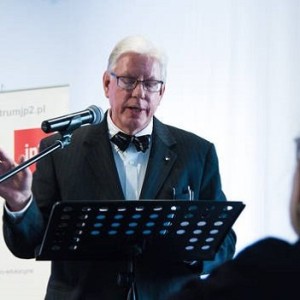
Monday Jan 13, 2020
Episode 092 - Scientists and Religion with Dr. Tom Ryba
Monday Jan 13, 2020
Monday Jan 13, 2020
- Dr. Thomas Ryba is a senior lecturer and adjunct professor teaching philosophy and religious studies at the School of Interdisciplinary Studies in Purdue University’s College of Arts. He also holds the title of Notre Dame Theologian-in-Residence for the Aquinas Educational Foundation, offering instruction and guidance on staff at the Saint Thomas Aquinas Catholic Center at Purdue.
- Ryba kindly adjusted his schedule to meet with Paul and Bill in December 2019 for an interview about themes central to his 30 years of teaching in service to students and faculty and his enduring interest in the connections between the learning of science and religion.
- We discussed trends which suggest today’s cultural and academic emphasis on science-based knowledge draws young people away from their interest in religious insights and practices. He said that, while he’s seen a doubling in the proportion of students who come to college having received no substantive knowledge of traditional faiths, a sizable percentage of people engaged in the hard sciences at Purdue are actively interested in religion. He added he observes a strong ethos of welcoming of diverse people of faith on the campus.
- Ryba is among those planning an academic conference which this year will explore links between articificial intelligence and human consciousness, including ethics for robots.
- His convictions about a long-standing complementarity of insights from science and faith echo his own graduate research, which explored analogs between Girardian mathematical group theory and an understanding of the Holy Trinity in Christian belief.
- In our TSSM interview, Ryba spoke of a Purdue graduate whose studies of physics and electrical engineering have gone hand-in-hand with his preparation for the Jesuit priesthood. Rev. Luis Jimenez, SJ, continues his academic work at the University of Puerto Rico while serving as a priest and lecturing throughout Latin America, he said.
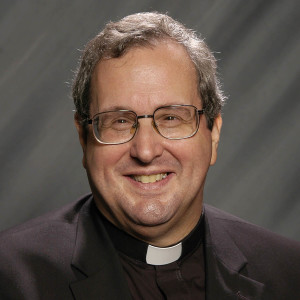
Monday Nov 25, 2019
Episode 087 - Fr. Robert Spitzer and Intellectual Culture (rerun)
Monday Nov 25, 2019
Monday Nov 25, 2019
Unfortunately, this week Paul got deathly ill and that prevented us from recording the promised "end of the world" episode. Here instead is a re-edited version of Bill's interview with Fr. Robert Spitzer from August 2018 (originally run as Episode 20). One of our earliest interviews and still, amid all the great guests who have given time to this little podcast, one of the best.

